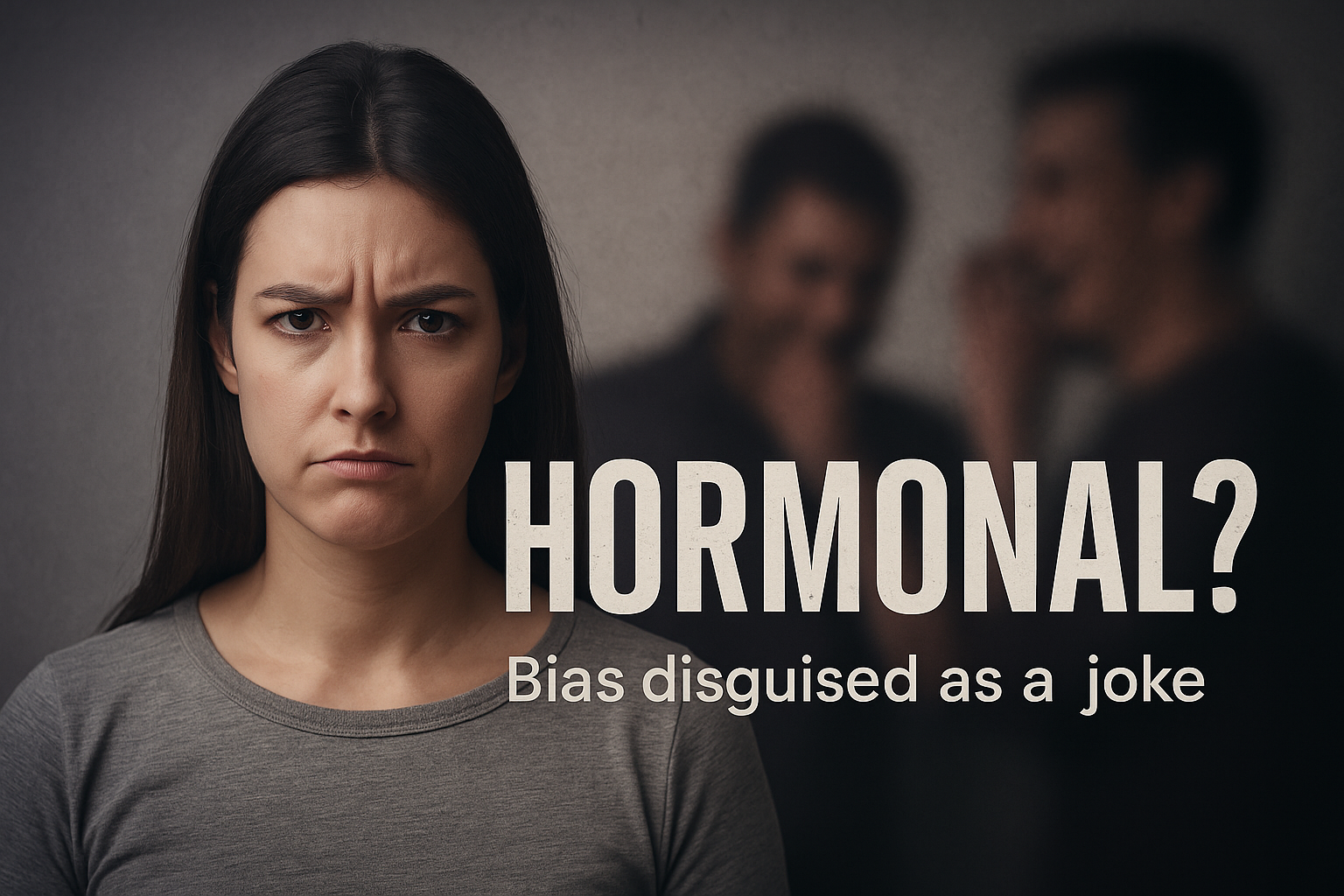Being called “hormonal” even jokingly reflects gender bias, particularly if it is used to undermine, dismiss, or delegitimize your feelings or behavior based on gendered assumptions.
Why it’s biased:
- Stereotyping: The term “hormonal” is often used to stereotype women as overly emotional, irrational, or unstable—especially during menstruation, pregnancy, or menopause. This aligns with long-standing sex stereotypes that label women as less competent or less rational due to their biology.
- Dismissal of agency: Using “hormonal” to discredit someone’s viewpoint can be a form of gendered silencing—a way to suggest that emotions are not valid or reasoned, thus undermining credibility and reinforcing a power imbalance.
- Double standard: Men are rarely labeled “hormonal,” even though hormonal shifts affect all genders. This reveals an unequal standard in emotional expression and behavior.
When it’s especially problematic:
- In workplaces or public settings, it can undermine professional credibility.
- In personal relationships, it can be a tactic for emotional control or manipulation.
- In legal or medical contexts, it may amount to institutional stereotyping with real consequences.
How to respond:
You might consider asking for clarification, such as:
“What do you mean by ‘hormonal’?”
This can help expose the underlying bias and shift the conversation.
Saroj Kumari: Fighting Malnutrition in Rural Bihar
In Bihar’s overlooked Supaul district, Saroj Kumari is tackling malnutrition at its root – using trust, creativity, and lived presence….
Don’t Call Me Hormonal
Being called “hormonal” even jokingly reflects gender bias, particularly if it is used to undermine, dismiss, or delegitimize your feelings or…
Dear Men, Carry Your Own Burden of Redemption
We’ve held space, we’ve held silence, and we’ve held men while they broke us – all in the name of…
Dr. Michelle Frank: Care Meets Community
For too long, women’s health in India has been overlooked, under-discussed, and wrapped in silence. Dr. Michelle Frank is working to change…
Let’s Talk About Menopause
Understanding Menopause: What’s Happening to My Body? Menopause marks a natural transition in a woman’s life, signifying the end of menstrual…
Are You Overworked? – Self Assessment
Are You Overworked? – Self Assessment …









